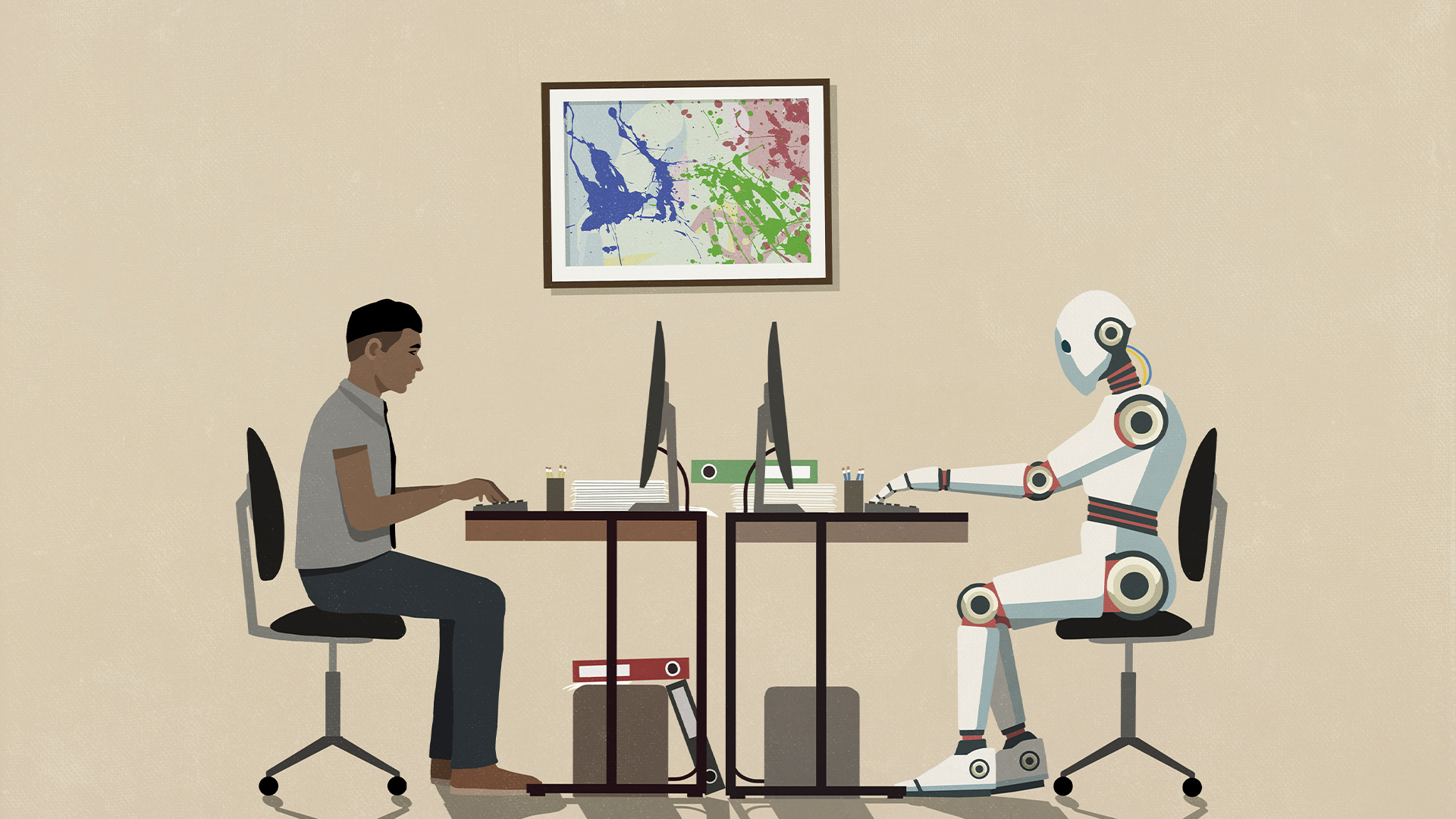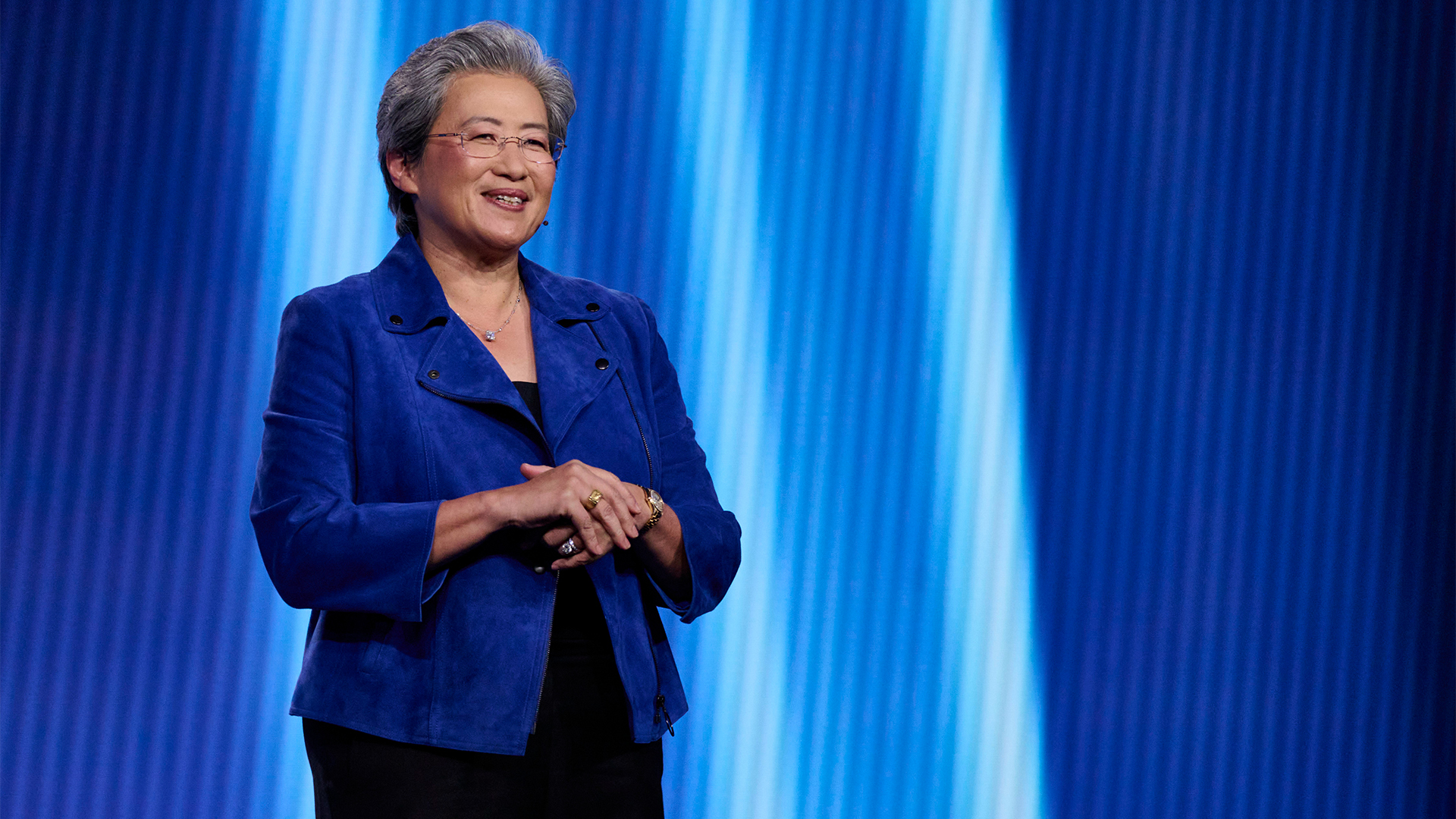AI resume screening, recruiter chatbots, and ‘ghost jobs’ are causing havoc for struggling entry-level workers
A new report shows employers are cutting back on entry-level hiring, but expect things to improve eventually


AI is continuing to make life harder for entry-level workers, with a new study revealing that new grads are facing a radically changed job market.
According to research from St. Thomas University, nearly half (42%) of employers believe that AI may eliminate most entry-level white-collar roles in the next five years – although a similar number think these roles will recover after the initial AI boom.
The study noted that the application process is getting more disheartening for those entering the workforce. One-in-five graduates said they'd applied to more than 50 jobs before landing their first role, with just 21% of applications resulting in a real human interview.
Nearly three-quarters of job seekers (73%) believed AI resume filters prevented their applications from being seen – and they're right, with almost half of employers using AI to screen resumes.
Meanwhile, 28% said AI helped schedule interviews or assess candidates through tests. Other applications include chatbots for communication, ranking candidates after recruiter reviews, and even analyzing video interviews.
Nearly eight-in-ten job seekers said they’ve run into 'ghost jobs' that appear outdated or fake, and 42% or employers admitted that this was the case.
There’s light on the horizon for entry-level workers
Despite a challenging jobs market, researchers said there is room for “cautious optimism” ahead.
Sign up today and you will receive a free copy of our Future Focus 2025 report - the leading guidance on AI, cybersecurity and other IT challenges as per 700+ senior executives
Nearly two-in-five hiring professionals said they expect to increase entry-level hiring in the year ahead. Over the past year, 38% said entry-level hiring stayed the same, and 29% reported growth.
More than half of companies (53%) said they hadn't changed minimum experience requirements, and only 18% required AI-specific skills for most postings.
"Early-career tech workers are facing a challenging but not insurmountable path into the industry. Graduates are applying to numerous jobs, often encountering ghost listings, yet many still see value in their degrees and believe in the long-term potential of tech careers," researchers said.
"On the employer side, cautious optimism about entry-level hiring suggests opportunities remain, even as AI-driven processes change recruitment tactics.
“These findings illustrate a complex but evolving hiring environment that future graduates must be prepared to navigate."
The report is just the latest to highlight the difficulties facing new graduates in the age of AI.
Earlier this summer, for example, SignalFire’s 2025 State of Talent report found that tech companies were hiring significantly fewer college graduates than in the year before.
The unemployment rate for new college graduates had surged 30% since September 2022, researchers said.
Meanwhile, tech leaders confirmed the trend, with LinkedIn’s chief economic opportunity officer, Aneesh Raman, comparing the situation with the sharp decline in manufacturing jobs that took place in the US during the 1980s.
Notably, Anthropic CEO Dario Amodei said that both the industry and government needed to be more honest about the situation, telling Axios "I don’t think this is on people’s radar."
Make sure to follow ITPro on Google News to keep tabs on all our latest news, analysis, and reviews.
MORE FROM ITPRO
- Analysts warn AI layoffs could spark a new wave of offshoring
- This Stanford study shows AI is starting to take jobs
- Microsoft says these 10 jobs are at highest risk of being upended by AI
Emma Woollacott is a freelance journalist writing for publications including the BBC, Private Eye, Forbes, Raconteur and specialist technology titles.
-
 Veeam ramps up growth plans with trio of leadership hires
Veeam ramps up growth plans with trio of leadership hiresNews The data resilience vendor has reshaped its senior leadership team to deepen partner engagement and streamline customer success in the AI era
-
 Business leaders are using AI as a “license to reduce headcount” – new Morgan Stanley research lays bare the impact on UK workers
Business leaders are using AI as a “license to reduce headcount” – new Morgan Stanley research lays bare the impact on UK workersNews Analysis of five sectors highlights an "early warning sign" of AI’s impact on jobs
-
 Lloyds Banking Group wants to train every employee in AI by the end of this year – here's how it plans to do it
Lloyds Banking Group wants to train every employee in AI by the end of this year – here's how it plans to do itNews The new AI Academy from Lloyds Banking Group looks to upskill staff, drive AI use, and improve customer service
-
 CEOs are fed up with poor returns on investment from AI: Enterprises are struggling to even 'move beyond pilots' and 56% say the technology has delivered zero cost or revenue improvements
CEOs are fed up with poor returns on investment from AI: Enterprises are struggling to even 'move beyond pilots' and 56% say the technology has delivered zero cost or revenue improvementsNews Most CEOs say they're struggling to turn AI investment into tangible returns and failing to move beyond exploratory projects
-
 Companies continue to splash out on AI, despite disillusionment with the technology
Companies continue to splash out on AI, despite disillusionment with the technologyNews Worldwide spending on AI will hit $2.5 trillion in 2026, according to Gartner, despite IT leaders wallowing in the "Trough of Disillusionment" – and spending will surge again next year.
-
 A new study claims AI will destroy 10.4 million roles in the US by 2030, more than the number of jobs lost in the Great Recession – but analysts still insist there won’t be a ‘jobs apocalypse’
A new study claims AI will destroy 10.4 million roles in the US by 2030, more than the number of jobs lost in the Great Recession – but analysts still insist there won’t be a ‘jobs apocalypse’News A frantic push to automate roles with AI could come back to haunt many enterprises, according to Forrester
-
 Businesses aren't laying off staff because of AI, they're using it as an excuse to distract from 'weak demand or excessive hiring'
Businesses aren't laying off staff because of AI, they're using it as an excuse to distract from 'weak demand or excessive hiring'News It's sexier to say AI caused redundancies than it is to admit the economy is bad or overhiring has happened
-
 Lisa Su says AI is changing AMD’s hiring strategy – but not for the reason you might think
Lisa Su says AI is changing AMD’s hiring strategy – but not for the reason you might thinkNews AMD CEO Lisa Su has revealed AI is directly influencing recruitment practices at the chip maker but, unlike some tech firms, it’s led to increased headcount.


